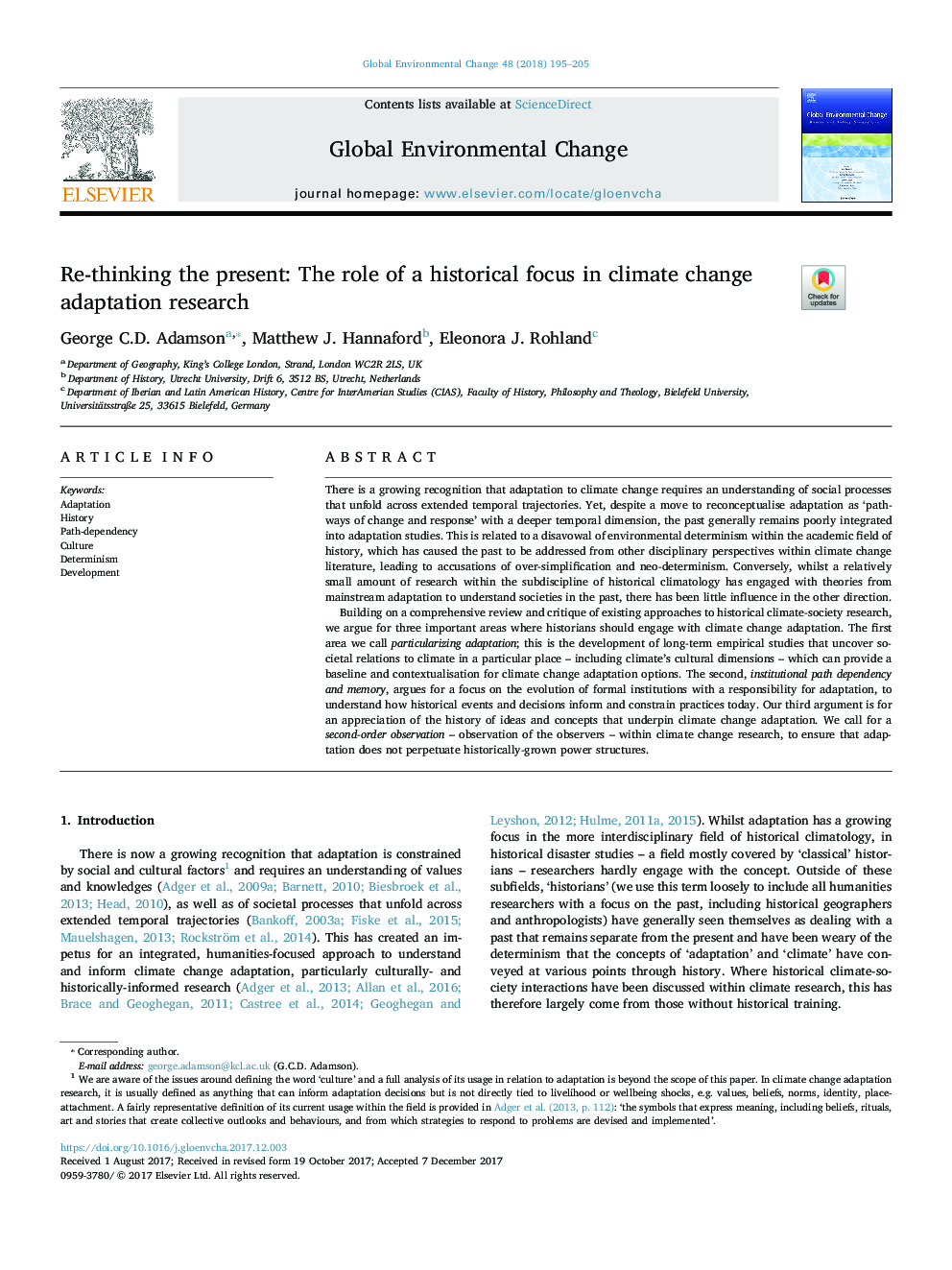| Article ID | Journal | Published Year | Pages | File Type |
|---|---|---|---|---|
| 7469116 | Global Environmental Change | 2018 | 11 Pages |
Abstract
Building on a comprehensive review and critique of existing approaches to historical climate-society research, we argue for three important areas where historians should engage with climate change adaptation. The first area we call particularizing adaptation; this is the development of long-term empirical studies that uncover societal relations to climate in a particular place - including climate's cultural dimensions - which can provide a baseline and contextualisation for climate change adaptation options. The second, institutional path dependency and memory, argues for a focus on the evolution of formal institutions with a responsibility for adaptation, to understand how historical events and decisions inform and constrain practices today. Our third argument is for an appreciation of the history of ideas and concepts that underpin climate change adaptation. We call for a second-order observation - observation of the observers - within climate change research, to ensure that adaptation does not perpetuate historically-grown power structures.
Related Topics
Life Sciences
Environmental Science
Environmental Science (General)
Authors
George C.D. Adamson, Matthew J. Hannaford, Eleonora J. Rohland,
